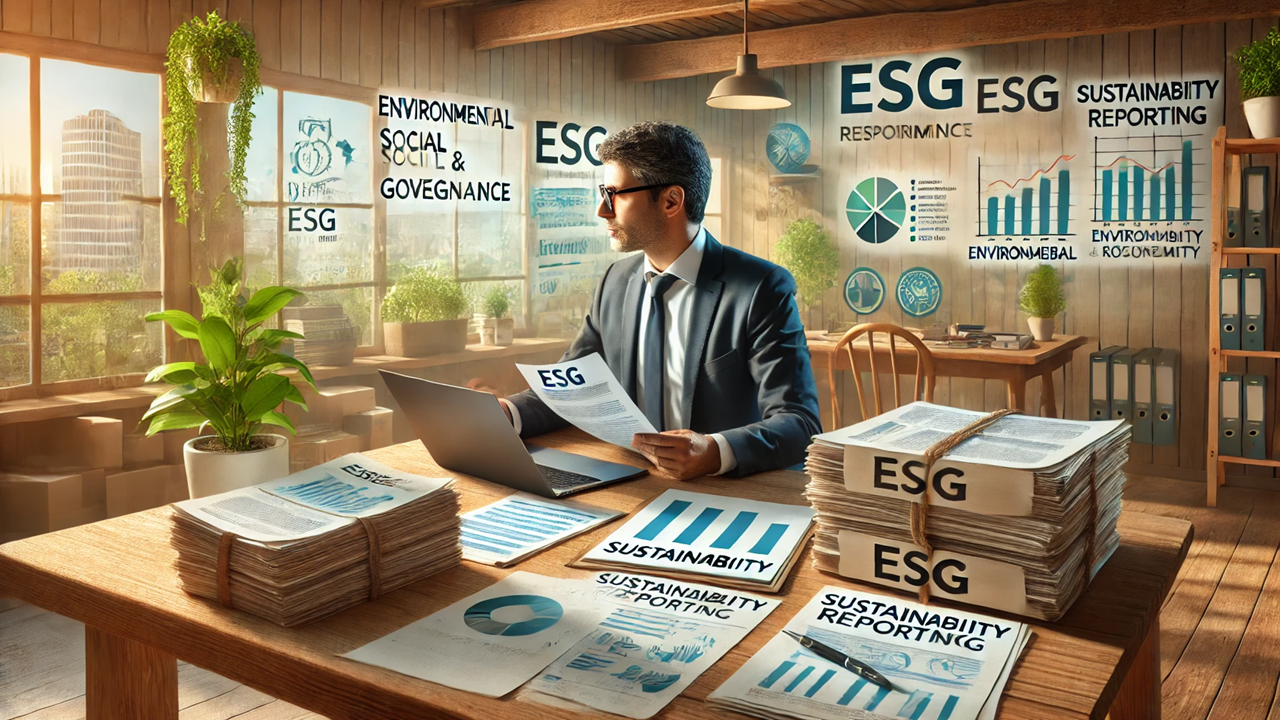Sustainability Disclosure for SMEs: Navigating Challenges and Opportunities
Sustainability disclosure is becoming a necessity for SMEs in developing economies due to rising global regulations. A new UNCTAD report explores the challenges SMEs face in meeting ESG reporting requirements and proposes solutions to simplify compliance. With better policies and financial incentives, SMEs can leverage sustainability as a competitive advantage rather than a regulatory burden.

The United Nations Conference on Trade and Development (UNCTAD) has released a pivotal report, Sustainability Disclosure for Small and Medium-Sized Enterprises in Developing Economies: Challenges and Responses. This report sheds light on the increasing global emphasis on sustainability disclosure and how it affects SMEs in developing economies. As larger corporations implement stricter environmental, social, and governance (ESG) reporting measures, smaller businesses find themselves caught in the tide of compliance expectations, often struggling to meet these requirements. Sustainability reporting has become a non-negotiable aspect of modern business, with governments and regulatory bodies enforcing new disclosure requirements. While initially aimed at large corporations, these regulations now extend to SMEs through supply chain obligations and financial market standards. Despite recognizing the benefits of sustainable practices, SMEs face significant barriers, including complex reporting standards, high compliance costs, and a lack of expertise. The UNCTAD report underscores the need for policies that simplify disclosure frameworks while maintaining transparency and accountability.
International frameworks such as the International Sustainability Standards Board (ISSB), Global Reporting Initiative (GRI), and the EU Corporate Sustainability Reporting Directive (CSRD) are shaping the future of sustainability disclosures. The ISSB has introduced IFRS S1 and IFRS S2, focusing on climate-related disclosures, while the EU’s CSRD mandates detailed sustainability reporting from 2024 onwards. These frameworks, though designed for large corporations, exert indirect pressure on SMEs to comply, particularly if they operate within global supply chains. One of the key takeaways from the report is the spillover effect of these regulations. The EU’s Carbon Border Adjustment Mechanism (CBAM), for instance, requires importers to report embedded carbon emissions, meaning that even small exporters must align with sustainability reporting expectations. This growing demand places SMEs in a challenging position, needing to develop sustainability disclosure capabilities without the financial and technical resources available to larger firms.
Several nations have begun implementing policies to facilitate SME sustainability reporting. Malaysia introduced the Simplified ESG Disclosure Guide (SEDG) to provide SMEs with an accessible framework. South Africa applies sustainability principles to businesses of all sizes under the King IV Code. India and Indonesia encourage voluntary sustainability disclosures through national initiatives. The EU has established voluntary sustainability disclosure standards for non-listed SMEs while making disclosure mandatory for listed SMEs from 2026. Countries are also linking sustainability reporting to access to finance. Türkiye and Bangladesh, for example, have introduced sustainable finance policies that require SMEs to demonstrate ESG commitments to qualify for loans.
SMEs in developing economies face four primary obstacles in meeting sustainability disclosure requirements: fragmented reporting standards, weak national infrastructure for reporting, limited knowledge and resources, and difficulties in accessing data. Without targeted interventions, these challenges could prevent SMEs from integrating sustainability into their business models, limiting their ability to compete in the global market. To address these challenges, the UNCTAD report proposes several solutions. Governments should integrate SME sustainability disclosure into national strategies, ensuring that reporting requirements are proportionate to business size and capacity. Financial institutions should incentivize sustainability reporting by linking it to loan eligibility and investment opportunities. Capacity-building programs should be expanded to train SMEs in sustainability reporting and provide them with digital tools for compliance. Global reporting standards should converge, ensuring interoperability between ISSB, GRI, and EU frameworks, and reducing complexity for SMEs operating across borders.
Sustainability disclosure is no longer an optional practice for SMEs. As market expectations and regulations continue evolving, businesses that fail to integrate ESG considerations risk being excluded from supply chains and financial markets. However, with supportive policies, streamlined reporting frameworks, and increased access to technical assistance, SMEs can transition toward sustainability without being overwhelmed by compliance burdens. The UNCTAD report highlights the urgent need for coordinated action at national and international levels to ensure that SMEs in developing economies are not left behind in the global shift toward sustainability. By implementing proportional regulations and fostering an enabling ecosystem, policymakers can help SMEs leverage sustainability as a competitive advantage rather than a compliance challenge. For small businesses aiming to thrive in a rapidly changing market landscape, embracing sustainability reporting is not just about meeting regulatory demands—it is a strategic move toward long-term resilience and growth.
- FIRST PUBLISHED IN:
- Devdiscourse










